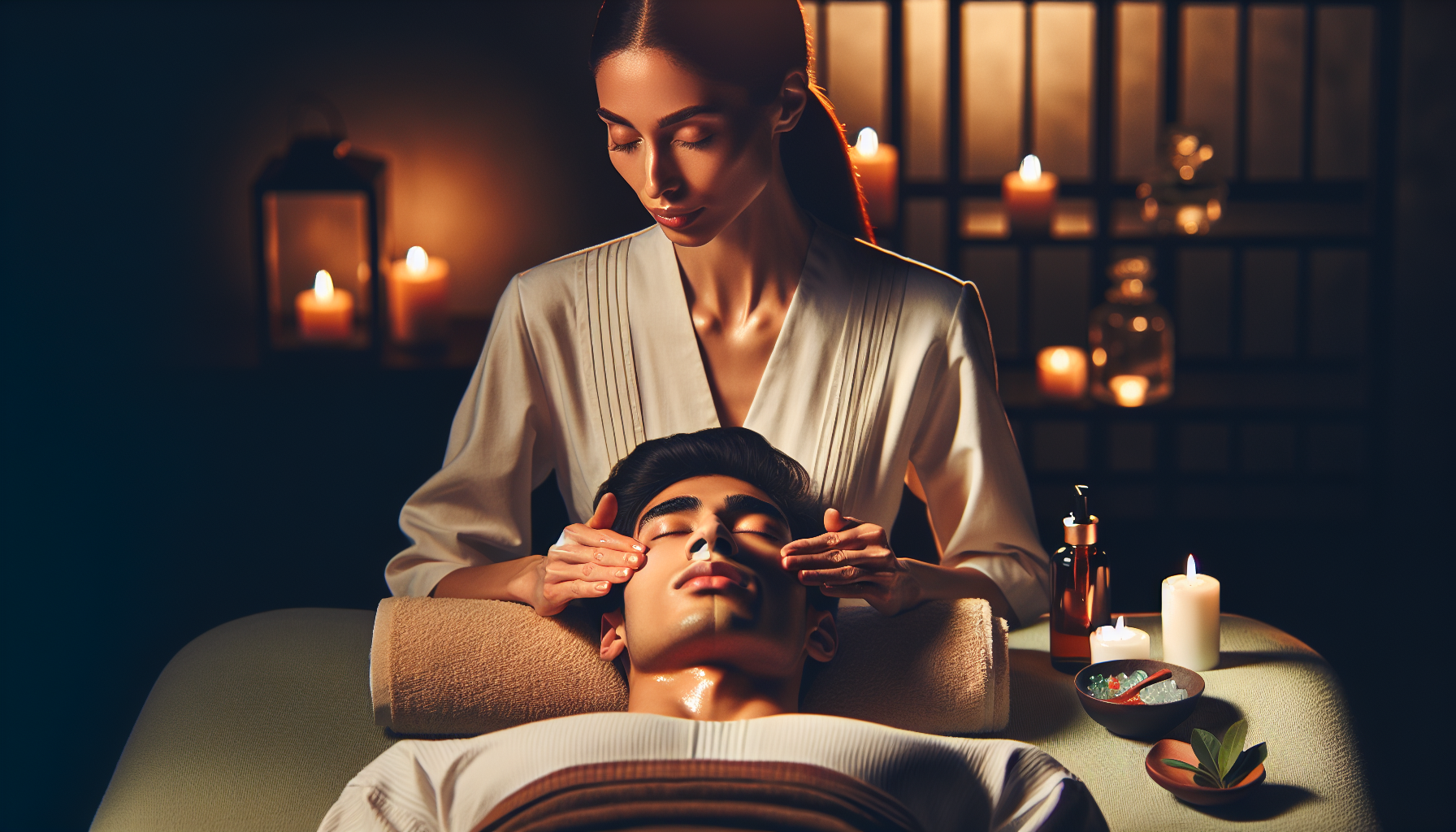Massage therapy has long been recognized for its ability to bolster physical and mental well-being, but its specific benefits for skin health are becoming increasingly appreciated by experts in dermatology and holistic health. In this comprehensive exploration, we will delve into the multifaceted ways in which massage can enhance the condition and vitality of your skin, an organ that not only serves as a protective barrier but also reflects your overall health.
The Science of Skin and Massage
The skin is the body’s largest organ, playing a crucial role in protection, sensation, and regulation. It serves as the first line of defense against environmental aggressors, assists in the regulation of body temperature, and allows us the sense of touch. The health of our skin is thus integral to our overall well-being.
Massage therapy is known to promote relaxation and alleviate stress, which can lead to a cascade of positive effects on the skin. Stress can exacerbate skin conditions such as acne, eczema, and psoriasis, so by reducing stress, massage can indirectly improve these conditions. Moreover, massage can enhance circulation, bringing more oxygen and nutrients to the skin’s surface, which is vital for repair and rejuvenation.
Enhancing Circulation and Lymphatic Drainage
Improved circulation is one of the most immediate benefits of massage. By stimulating blood flow, massage encourages the nourishment of skin cells, which can lead to improved tone and a healthier appearance. Enhanced blood flow also aids in the removal of toxins and can hasten the healing process of damaged skin. For an in-depth understanding of the skin’s structure and needs, the article on Skin Health provides valuable insights that complement the information presented here.
Stress Reduction and Hormonal Balance
The reduction of stress through massage can lead to a decrease in cortisol, a hormone that can trigger inflammation and breakouts. By promoting relaxation, massage helps to balance hormones that influence skin health. It’s also beneficial for those looking to combat the effects of aging, as chronic stress can accelerate the appearance of fine lines and wrinkles.
The Role of Massage in Skin Conditions
Massage can play a supportive role in the management and treatment of various skin conditions. For instance, gentle massage may help in reducing scar tissue buildup by enhancing flexibility and circulation. While massage should not replace medical treatments, it can serve as a complementary therapy that supports the skin’s natural healing processes.
Acne and Skin Inflammation
Massage techniques that focus on gentle, non-comedogenic oils can be part of an acne treatment regimen. By improving circulation and reducing stress, massage may help mitigate the factors contributing to acne flare-ups. For a better understanding of the relationship between skin hydration, acne, and treatments, readers should consider the detailed insights provided in the article How Skin Hydration Affects Acne and Its Treatment.
Eczema and Psoriasis
While these conditions should be primarily managed by a healthcare professional, massage may provide relief from the stress and discomfort associated with eczema and psoriasis. The use of hypoallergenic, fragrance-free oils can help hydrate dry patches and soothe irritated skin.
Anti-Aging Benefits
Massage can also be instrumental in anti-aging skincare routines. Techniques that stimulate the skin may boost the production of collagen and elastin, which contribute to the skin’s elasticity and firmness. For a deeper dive into anti-aging strategies tailored to various life stages, consider reading Anti-Aging Strategies for Skin in Your 30s.
Massage Techniques for Skin Health
Different massage techniques offer unique benefits for skin health. Here are some commonly used methods:
Lymphatic Drainage
This gentle massage technique is designed to stimulate the lymphatic system, which helps remove waste and toxins from the bodily tissues. Lymphatic drainage can reduce puffiness and promote a clearer, more radiant complexion.
Swedish Massage
Swedish massage is known for its relaxing and invigorating effects. The technique involves long strokes, kneading, and circular movements that can improve blood flow and may help in the maintenance of healthy, glowing skin.
Acupressure
Acupressure targets specific points on the body to balance energy flow. For skin health, acupressure can be used to alleviate tension that may contribute to stress-related skin issues.
Aromatherapy Massage
Incorporating essential oils into massage therapy can enhance the experience and provide additional benefits for the skin. For example, oils like tea tree have antimicrobial properties, while lavender can soothe the skin.
Supporting Research and External Resources
A wealth of research supports the benefits of massage for skin health. Studies have indicated that massage may enhance immune function, promote relaxation, and improve mood, all of which can indirectly benefit skin health. For those interested in exploring the scientific underpinnings of massage therapy, The International Journal of Therapeutic Massage & Bodywork offers peer-reviewed articles on the topic.
For a more holistic perspective on wellness and skin health, resources like The National Center for Complementary and Integrative Health provide evidence-based information on alternative therapies, including massage.
Practical Tips for Integrating Massage into Your Skin Care Routine
To reap the benefits of massage for skin health, consider these practical tips:
-
Consult with Professionals: Before starting any new massage regimen, especially if you have a specific skin condition, consult with a dermatologist or a certified massage therapist who has experience with skin health.
-
Choose the Right Products: Use oils and lotions that are appropriate for your skin type. The article How to Identify Your Unique Skin Type for Better Care can guide you in making the best choices for your routine.
-
Be Gentle: If you have sensitive skin or a condition like rosacea, opt for gentle massage techniques that won’t aggravate your skin.
-
Incorporate Regular Treatments: Make massage a regular part of your skin care routine for ongoing benefits.
-
Stay Hydrated: Drink plenty of water after a massage to help flush out toxins.
-
Combine with Other Skin Care Practices: Integrate massage with other skin care strategies, such as proper nutrition and regular dermatologist visits.
Conclusion
The therapeutic effects of massage on skin health are multifaceted and can lead to improved skin texture, tone, and overall appearance. By incorporating massage into your regular skin care regimen, you may not only enhance your skin’s health but also enjoy a greater sense of relaxation and well-being. Remember to consult with professionals and choose techniques and products that align with your unique skin needs.
The journey to radiant, healthy skin is ongoing, and massage therapy can be a valuable ally along the way. Embrace the holistic benefits of massage and let your skin reflect your commitment to self-care and health.



